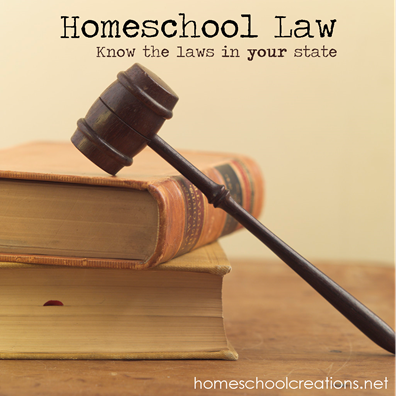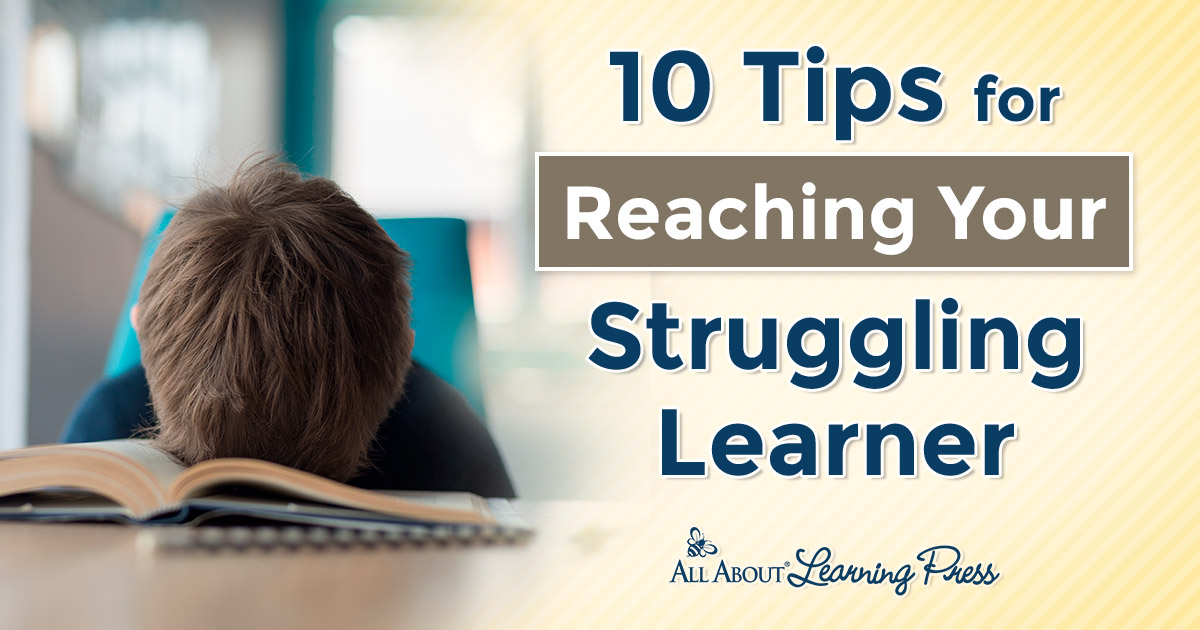- Like
- Digg
- Del
- Tumblr
- VKontakte
- Buffer
- Love This
- Odnoklassniki
- Meneame
- Blogger
- Amazon
- Yahoo Mail
- Gmail
- AOL
- Newsvine
- HackerNews
- Evernote
- MySpace
- Mail.ru
- Viadeo
- Line
- Comments
- Yummly
- SMS
- Viber
- Telegram
- Subscribe
- Skype
- Facebook Messenger
- Kakao
- LiveJournal
- Yammer
- Edgar
- Fintel
- Mix
- Instapaper
- Copy Link

You’ve made the decision to homeschool – which by itself is a BIG decision. One thing to consider and research carefully before beginning are the laws of your individual state.
While homeschooling is legal in all fifty states, each state has unique laws stating what is required of both teachers and students: end of the year testing, hours to be completed each year, subjects to be covered, etc… Some states have very lenient laws and others have very strict and specific laws.
Basically, what works for one homeschool family {in one state} may not work for yours {in another state}.
Know the Homeschool Laws in Your State
So how do you find the laws and statutes in your state that entitle you to homeschool, but also give you the information for what is required from you? And once you find it, how do you understand it? This is very important, because laws in each state are continually changing and the changing of a single word or phrase can make a big difference in your homeschooling.
Going by what other online homeschool moms are doing can be difficult, unless you know they are in the same state you are. Again {and I cannot stress this enough} each state is different, so be sure you know the laws that apply to you and your family.
{This is where I mention to take a deep breath…hang in there!}.
The one place that I would HIGHLY recommend checking first is the Home School Legal Defense Association – HSLDA.org. This is a great source to find current and accurate information. HSLDA has a webpage dedicated to state homeschool laws. From this main page you are able to click on the state that you live in and download current information on homeschooling requirements.
Another resource for families is National Home Education Network. They have a variety of resources available on their website as well, including a state-at-a-glance page for families.
Know Your Local Ordinances
Once you know the laws for your state, you are almost there. You should also check with your city/town ordinances and your local Public School Board. The cities and counties in each state may have additional policies or requirements to go along with the state laws.
For example, each year we are required to send in a notice of intent to homeschool and also testing results to our county {based on the option we have chosen to homeschool under in our state}. Things are a little different between the nearby city we used to live in compared to the county that we now live in – minor differences, but ones that we need to be aware of regardless.
Requirements may be minimal or more complex – but you are responsible for knowing what is required in your area, so be sure to do your homework!
Questions to Ask
Each state requires different things from the parent {a.k.a. teacher} and the child {a.k.a. student}. Things to consider when looking at the law might include:
-
Hourly, daily, and yearly requirements. Some states require 180 days of school attendance, a specific hour amount for each day of attendance while other states are not as strict in their guidelines. Be sure to find out what your state specifies.
-
Legal documentation. Are there any legal forms that need to be turned into the state or local government at the beginning or end of each school year? Some states require a notice of intent {NOI} to be filed, end of the year testing to complete and report, evaluations via a secondary source, etc… There may also be specific dates to complete and turn in paperwork, attendance reports to file – again things that are specific to your state and locality, so be sure to know the law inside and out.
-
Record keeping. How specific do you need to be with your record keeping each year? Are you required to keep paperwork? Keep a homeschool planner with detailed lesson plans?
-
Yearly testing. Is testing something that is required in your state? Are there specific tests that need to be used annually? Testing is one of the options for assessment in our state, and results need to be turned in at a specific time each year, so know the deadlines for test result submissions as well.
-
Teaching requirements. Does the teaching parent or family have specific requirements: a high school diploma, a college degree, a teaching license, or are there no state requirements? For example, in our state, the requirement is that a parent have a high school diploma {either parent in our state can have this – it doesn’t have to be the teaching parent}. Do you have to submit proof of your education?
-
Independent assessments. Some states offer an option of having an assessment done via a certified teacher or require annual assessments. Know the law for your area and check with local homeschool families for recommendations of teachers that can help with this area.
-
Yearly portfolios. Are these required and what must be included when submitting one to your local authority? Is this just once a year? Multiple times a year?
-
Curriculum and subject requirements. Is your family required to teach specific subjects or use specific curriculum? Some states may require certain subjects at different grade levels, only require basic subjects, or have no requirements at all. Our state requires only a specific few subjects and we do not have to turn in specific curriculum names, just an outline of what we plan to cover in the year.
-
Age of attendance. Certain states do not require school attendance until age 6, but some may be earlier or later. Also, what age are you required to continuing schooling {age 16 or higher}? School attendance is required, just be sure to know the law in your state. Don’t assume that all children must be in ‘school’ at age five.
-
Withdrawing from public school. If you child has been a part of the public school system or in a private school, you need to know what {and when} you are required to submit paperwork and if there are any requirements before withdrawing your child from school to school at home.
Understanding it All and Finding Help
How do you even begin to fully understand the law and all that is required in your area? Here are a few additional resources for you to consider in understanding your homeschool laws.
-
Contact your state homeschool support group – our state has a fabulous statewide support group with online resources as well as the ability to call and speak to people in person. Because it is state specific, they will better be able to help with the laws governing your state. Find your state support group here.
-
Attend a homeschool convention or workshop – many states have an annual homeschool conventions that offer fabulous help in workshops or classes and have knowledgeable people available that can help answer your questions.
-
Connect with local homeschool groups – not sure where to start looking? HSLDA has a listing of smaller homeschool organizations listed by state. You might also try calling local churches, since many groups and co-ops meet at local churches {at least in our area they do!}.
-
Find a seasoned homeschool mom in your area – there are many moms around you that have been walking the homeschool road for years. Don’t underestimate the knowledge and resource they can be to your family.
Above all, I would encourage you to fully understand and know the law. Ultimately, you are the one that is responsible, regardless of what other families have told you about the law. I highly recommend becoming a member of HSLDA.org because they are continually advocating for the rights of homeschool families and as a member you are entitled to free legal counsel as it relates to your homeschool rights {and this isn’t a paid endorsement for them – grins}.
We are blessed to have the freedom to educate our children at home. There are many families that have fought for the rights that we are enjoying – and I am so grateful that they have made the road so much easier for us today!
I’d also invite you to stick around over the next few weeks. I’m working on answering questions that you all have been asking about beginning to homeschool and hope that this will be a helpful series.
Question for you: Do you live in a state with strict homeschool laws or one that is fairly laid back for homeschoolers? What other recommendations do you have for new homeschool families to check for the laws in their state?
Disclaimer: I am not giving any legal advice and am unable to give you specific advice for your state and/or situation. This post is intended to help you find resources for homeschooling.
This post is a part of the Homeschool Basics series. Be sure to read the other posts if you are just joining in. For the record, I am not an expert. I’m a homeschool mom who is sharing what she’s learned so far along the way with her own family.










 The printables shared on this site are FREE of charge unless otherwise noted, and you are welcome to download them for your personal and/or classroom use only. However, free or purchased printables are NOT to be reproduced, hosted, sold, shared, or stored on any other website or electronic retrieval system (such as Scribd or Google docs). My printables are copyright protected and I appreciate your help in keeping them that way.
If you download and use some of my printables and then blog about them, please provide a link back to my blog and let me know - I'd love to see how you are using them! Please be sure to link to the blog post or web page and not directly to the file itself. Thank you!
The printables shared on this site are FREE of charge unless otherwise noted, and you are welcome to download them for your personal and/or classroom use only. However, free or purchased printables are NOT to be reproduced, hosted, sold, shared, or stored on any other website or electronic retrieval system (such as Scribd or Google docs). My printables are copyright protected and I appreciate your help in keeping them that way.
If you download and use some of my printables and then blog about them, please provide a link back to my blog and let me know - I'd love to see how you are using them! Please be sure to link to the blog post or web page and not directly to the file itself. Thank you!
Great Post. WV law is you have to show 180 school days. Year end you have to have a portfolio review by any certfd. teacher in any state or testing you pay for and pay a teacher. The only hard part with reviews is making sure the reviewer is not making up rules. Know what you have to show and what you don’t have to by law.
I live in one of those red states on the maps that circulate around (NY) and even though I thought it was going to be imposing to do it it hasn’t been because I’ve learned that it also depends greatly on your local district. Our district has so far been very hands off and I’ve been very grateful for that.
Thank you so very much for this post! We have decided to homeschool and I wasn’t to clear on what’s next, until your post! Thank you!!
I live in TN and the laws seem pretty relaxed to me but I know that other families feel they are strict. One tip I would add is that it is always good to have the law printed out and on file somewhere. I heard that it needs to be a part of what you have on hand in case you need to protect yourself in a court case (and hopefully that would never happen).
that is a fabulous suggestion!!
We are blessed to live in KY–one of the states with the lightest requirements…basically just a letter of intent at age 6…and then a suggest number of days for school.
It’s funny when I read the beginning of the post you started off by saying know your state…and I automatically thought you meant state of mind. As I would love to go back to school and be homeschooled (I’m in my 50’s) but, I see that I don’t think I could have done it with my own kids, my state of mind wasn’t calm enough in those days, but kudos to all whose state of mind is ready for it no matter what state you live in.
Thank You thank You Thank You! i cant say how helpful this is!!!
most welcome! :)
Thank you for this post! I am researching all sorts of things for our homeschooling journey and your list was really helpful. I took lots of notes. :)
Feel free to ask any questions. :)